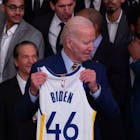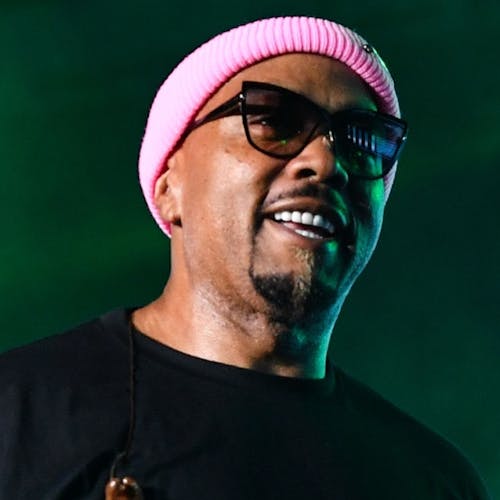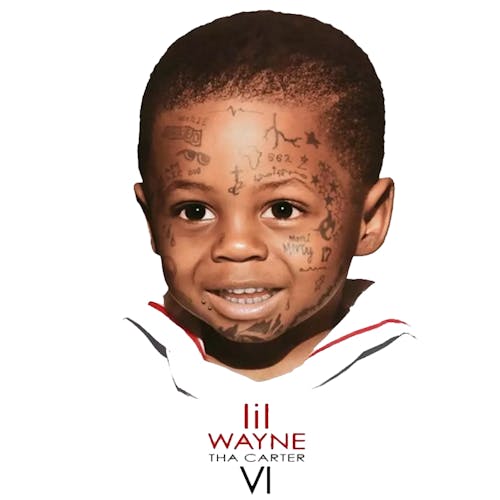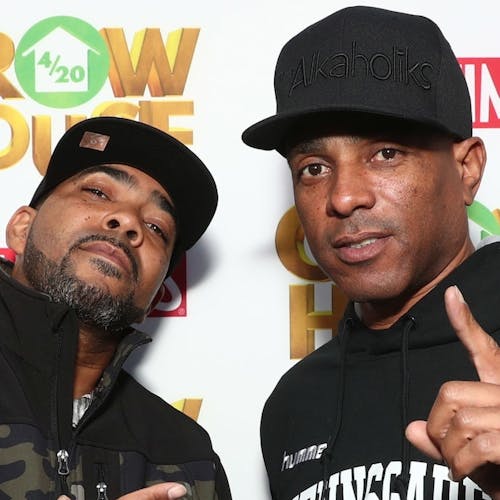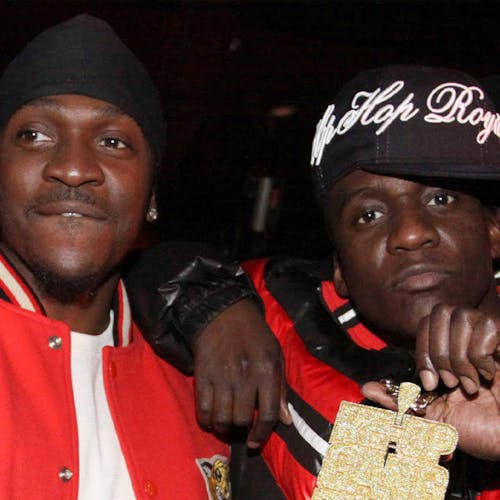
There’s an old saying within Hip Hop circles - most rappers want to be ballers, most ballers want to be rappers.
The connection has been pointed out, analyzed, and immortalized in several rap records. Additionally, a growing list of NBA players have attempted to crossover into the Hip-Hop space - most with little to no success, only seen as novelty acts. The latest basketball player in this tradition is Baron Davis. And while Baron is not the first and certainly not the last NBA player to make and release rap records, none of his peers are doing it like him.
“I think that's why I earn credibility and respect amongst my peers,” Baron tells me, via zoom, comfortability leaning back in a studio chair. “And that’s all I seek to achieve.”
Baron is talking to me from his recording studio, housed within his full creative compound in Los Angeles that serves as a hub for his various entertainment ventures. It’s in this space that he works on content and generates new ideas, in between heated games of Madden. Today, he sits in front of a large computer screen, beige LA Dodgers hat, and some kind of midi controller or keyboard. It could also be a notebook - it’s a little hard to tell. What is clear is the way in which Baron breaks down his work ethic and methods that have come to define his efforts in a number of fields. After just a few minutes of talking to Davis, it is clear that he has a deep desire to study and master a craft rather than just do it. It is a mindset that led him to be a top recruit and then an All-American at UCLA, a 2X NBA All-Star, 2X NBA Steals leader, and an All-NBA team member over the course of his 15-year NBA career. It also led to several ridiculous highlight reels on youtube, most ending with an ego shattering dunk over Andrei Kirilenko.
That mindset has also transferred over into his acting career, which was sparked during his high school years in LA and officially began in 2005. Since then, he’s appeared and produced several television and film projects ranging from a documentary on the Drew League, to his own Curb Your Enthusiasm-esqe show (WTF Baron Davis), and a new “Hip-Hop Black Santa” movie that is currently in the works. In 2021, Baron Davis directed his first feature film, Domino: Battle of the Bones, a comedy at the intersection of competitive dominoes, race relations, and family dynamics.
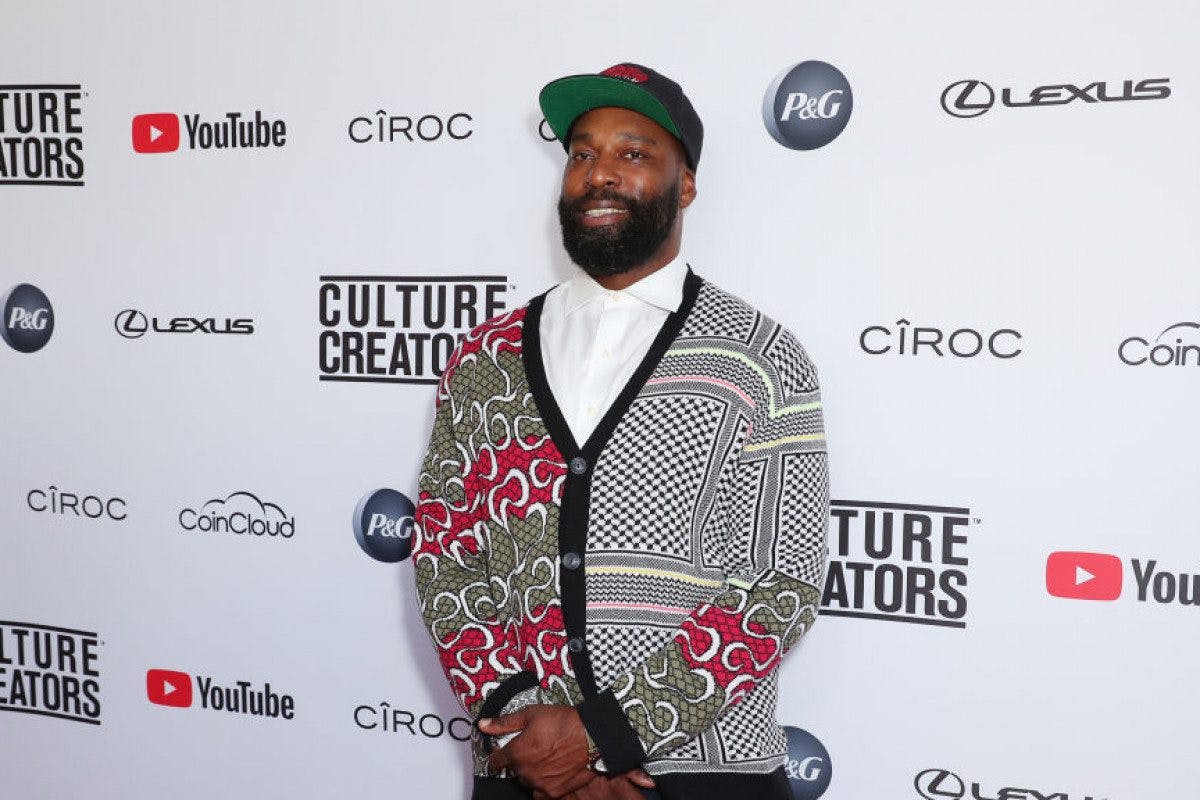
At the time of our talk, Baron Davis’ attention is focused on Bart Oatmeal, an animated character he created and will properly introduce to the world with an NFT and EP in 2023. Bart is part of an Oatmeal universe, a collection of characters that tell stories and pull from the nostalgia of the 80’s and 90’s, focusing on Hip Hop and the LA Hip Hop scene in particular.
“The whole goal of the Oatmeals is unlocking your creativity, creative freedom, and being able to have fun and express yourself in multiple artistic variables,” he says.
To create this project, Baron tapped into his love of Hip Hop, something that started around the age of 6 or 7, just after he learned how to spell. Throughout his NBA career, and even before it, he was surrounded by some top emcees and producers. He fell in early with the LOX, Raekwon from Wu-Tang Clan and many others through Murder Inc - he played on their team in some infamous Rucker Tournaments. Any chance he got, he was in the studio observing, watching, taking notes and eventually teaching himself how to DJ, then how to use Ableton and Logic. When no one would rap on his beats, he wrote songs and did it himself. He repeated this process until he earned the respect of his peers in Hip Hop the same way in which he was respected in the basketball community. “It's been a very, very interesting journey. It’s like the school of Hip Hop musicology,” he tells me with a smirk. And he has reason to smile, not everyone is fortunate enough to study under a wordsmith like Styles P or a superior producer such as No ID.
Ahead of Bart Oatmeal’s official debut, I caught up with Baron Davis to talk about Hip Hop, his passion for storytelling, thoughts on Crypto, and more.
DROP YOUR EMAIL
TO STAY IN THE KNOW
Alexander Fruchter: I want to understand your relationship with music. Have you always been into writing, rapping? When did you fall in love with music? What role has it played in your life?
Baron Davis: I would say music is the thing. I got a playlist for my life, and music has always been the centerpiece. That soundtrack. I wrote my first rap with my homeboys when I was six or seven years old, when I could really start spelling. I think for basketball and music, it was like Biggie said, “Either you’re slinging it crack rock, or you got a wicked jump shot”… or you rap. You know what I mean? And so those were the outlets outside of going to school, going to college, getting a job. Those are the people that you looked up to and made you say, ‘Okay, this is what talent looks like and this is attainable talent. Just growing up, you just love music. So, you’re on the bus with your teammates freestyling. You're in the League, you’re in studios asking rappers to rap or producers to send you beats cause you rap. For me, I always wanted to do it, I just never took the time to do it. I always felt like it was hard to produce. It was hard to DJ. And I never took the time.
It wasn't until I started having kids where I had some free-time. And I was like, ‘All right. Let me take these DJ classes. Let me start studying and learning these producers and learning how to produce, take Ableton and Logic classes and understand the software. And now I can go back in the studio, you know, with producers who are making hit records, and I can be added value. I can have some - not some expertise - but have an opinion. I can add value to the pot. I can get that respect. And so for me it was just really just turning the corner and saying, ‘Well, I can't play basketball no more, how can I find some type of outlet, something that I can love and do? And I love to write. I start DJing and making music, and nobody would rap on my beats, so I start writing to the beats, and then taking it back. I think that's why I earn credibility and respect amongst my peers, and that’s all I seek to achieve. Just like basketball, I say ‘just ask my peers.’ It’s the same thing now. They know the work, the hard work. They see me evolve and they see the growth. They see where it is going, where it can go. I just want the respect of my peers.
Alexander Fruchter: That all makes sense. I definitely want to talk to you about some of the things you've done content wise. And I must say, you might be the first person I've talked to that’s said, ‘I had kids, and then had more free time.’ Bless you, man, tell me the secret. I have a five week old and a two year old, and it's crazy out here, but props to you.
Baron Davis: I mean, you got to think, I came from the NBA on the road for eight months, having no time. I never got a chance to really hang out in the city and get to know a city. I stopped playing basketball and it freed up a lot of time. Kids take up a lot of time, but they do go to school, and daycare. That's a good thing, they gotta go to sleep early.
Alexander Fruchter: One thing I read, and seems to be a common theme throughout what I've researched about you, it seems like storytelling is a thread throughout your life. I feel like you see storytelling as a way to change and impact the world, storytelling is your vehicle.
Baron Davis: I think you hit the nail on the head. The question is, how do you allow yourself or allow people to experience a point of view, a perspective and then also have a feeling? For me, with the ability to tell the story, the ability to create a world, or a vibe and bring people together, that’s the beauty of storytelling. It’s the collection of people that go into a project to make that shit happen. It's not just my creative mind. I may plant the seed, but if I stay there and just water it every single day, I’m gonna fall asleep and it's not going to grow. And so the beauty of storytelling is, when everybody’s bought in and you get all of everybody’s incredible talents. With that you get a collective perspective of the message you want to convey, or the vibe you want to get across. I love to create and I love all kind of shit. At the core of it though is, ‘what is the through line? What is the catch? How are people gonna resonate with this?’ We're not creating things that don't have any value or don't capture a moment, or are something that is dismissive. We want to always provide that inter-connectivity. Making people gather, making people communicate, not being afraid to communicate, and not just through talk, but through laughter, through dance, through singing.. I think storytelling is the only way around that. You look at the media. You look at the propaganda. You look at the news. There is a lot of this shit that we watch, and those are all stories, whether it is true or not. And so what we relate to most from our childhood, our upbringing, are the movies, the films, the music, the thing that actually captures who we are, where we are, and strikes that emotional cord.
Alexander Fruchter: What stories Are you looking to explore with Bart Oatmeal?
Baron Davis: Bart has a mind of his own. Bart’s got a style of his own, and it's more so like a kid in a candy store - being able to listen, vibe, and learn every time there is a recording, every time there is a session or a feature. It's moreso like learning musicology and taking things from this 90’s nostalgic vibe and implementing them in modern times. It allowed me to watch Bart travel through these generations and A&R, and sample the things that make sense for people. Different people are gonna resonate with this record. The youth are going to like it because it’s funny. The old people will like it because it's nostalgic to the beat. Bart’s recipe to the pot of gumbo of Hip Hop is like, ‘all right, L.A. got a vibe that’s original to L.A., and it's some real L.A., real California shit. But it's an appreciation of Hip-Hop and rap in all different formats. Being able to bring that out in L.A. and pay homage and legacy to all the dope people who can before Bart, that's the best way to articulate it. If I can tell that story through visuals, if I can tell that story through video, short films.. I get to, as Baron Davis, direct all these dope artists and collaborate with all these dope artists and they get to let their guard down and live in their own Oatmeal character. The whole goal of the Oatmeals is unlocking your creativity, creative freedom and being able to have fun and express yourself in multiple artistic variables.
Alexander Fruchter: Do you think the technology, what you’re doing with NFT’s, and being able to rap through this character - do you think that's what pushed you to do this? Would you be recording and releasing music if it wasn't for this way to put it out?
Baron Davis: I guess I would be forced to… I would be forced to. It was a question a long time ago like, ‘Why do you want to be Bart? Just go with Baron Davis.’ But hey, Bart is the legend, the legend is Bart. So if i'm not telling that story through Bart Oatmeal and what he brought to the table back in the eighties and the nineties to L.A. culture then, hey… I did some crate digging and some storytelling, and created a character that I want to resonate and make nostalgic with everybody else. I could have put it out as Baron Davis, but you would have been listening to the raps of Baron Davis. And so that's why Bart Oatmeal exists.
Alexander Fruchter: There's also a strong tradition in Hip-Hop of artists assuming a character and rich backstory from MF DOOM or Biz Markie or Wu-Tang Clan. There are a lot of larger than life characters, and I think that's a strong tradition that you can tap into. It gives you more freedom to take it anywhere. People might expect a Baron Davis rap record to just be about basketball. You might be confined, or they might not take it seriously.
Baron Davis: Would people be ranting and raving and chanting every word from O’Shea Jackson [instead of Ice Cube]? It's that relationship. Just studying L.A., just studying rap, studying Hip-Hop. When you create music you have the ability to explore an identity. I think people who love it, people who want to—I’m not saying that I’m a great (Bart Oatmeal is a legend though)—but the greats created characters and it allowed them the freedom to explore that character and explore that story as an extension of themselves. It's just like an actor. That is Denzel Washington. When you’re watching John Q or Training Day, you’re so enamored that you forget you’re watching Denzel Washington. That was just the angle and the vibe with the artistry that was like, ‘You have to have a character. You can't be Baron Davis.’ Who is Baron Davis in this greater ecosystem [of] Hip-Hop?
Big love my guy 💪🏾💪🏾 … super fire 🔥. Appreciate all the support!!! We are all in this together !! #web3 #blacksanta #bCRC https://t.co/6AE9xRf5bA
— Baron Davis (@BaronDavis) January 4, 2023
Alexander Fruchter: You said you're able to A&R. Have you been able to collaborate or be in the studio with some of the artists that have inspired you or that currently inspire this character?
Baron Davis: Yeah, It's been a very, very interesting journey. It’s like the school of Hip-Hop musicology. When I was in New York I used to hang out at the LOX studio. So you got Styles P., you got Jadakiss, You got Sheek Louch, they accepted me in. After that, you go to No ID. You're in a studio with No ID and Common recording his album, Killer Mike recording his album, Big Sean.. I'm sitting there, hearing a lot of people, seeing a lot of people through No ID and listening to those conversations.
Then you go to 1500 or Nothin’, Mars, Fontelroy, being around these dudes and just being around the LA music scene. And then you get to the dudes like Dom Kennedy… The goal was being able to make music with your homies and the dudes you were always in the studio with and you love. The Dom’s, G Perico, J. Stone, that next generation. Mistah Fab, Badluck, Problem, Glasses Malone, Term, dudes that I guess they inspire me from that LA vibe. Big Rich from SF, we got a joint with Money Man, I got one with Symba.. I got a record with 5 Mics. 5 Mics comes in the studio and he’s ready to work, he’s ready to turn the mic on. Mistah Fab, it takes him 2 minutes to record a song. It’s just trying to get with dope dudes who’s iron is sharp. There’s more to come. I’m waiting on Kiss, I’m waiting on Fab, I’m waiting on Raekwon, all my homeboys, Common! All the homies that I know. It’ll be interesting and fun because you get to do something and live out a world that you always wanted to be a part of.
Alexander Fruchter: I’m going to text Raekwon and tell him, ‘Baron says send in the verse.’
Baron Davis: Yeah, please. I remember he played the Purple Tape for me at my house like a year and a half before it came out. He just pressed play and just ran through the whole album. It was sick.
Alexander Fruchter: Wow. that’s way back.
Baron Davis: Way back.
Alexander Fruchter: So you knew him before…
Baron Davis: Basketball and Hip-Hop, it's like you wind up in the same places around the same people. Shout-out to Murder Inc, I hooped on their team in the Rucker. I knew people in New York, just being around them. I always wanted to be around and hang around the music vibe in my off season, because that's what I enjoyed the most.
Alexander Fruchter: I meant to start the interview with this, but I wanted to say, it's a pleasure to talk to Baron fucking Davis. You get the Curb Your Enthusiasm vibe from your show WTF Baron Davis. I'm just curious, what parts of that character are you? What parts are the Larry David version of you?.
Baron Davis: Shit, man, I don't know. It's just my life. People come around me all the time now that they’ve seen the show and we’ll be hanging around and they’ll say, ‘this could have been an episode on your show!’ It's really art imitating life. So, I would say, it's me. If you think about it, I’m not really playing nobody. I'm me. I'm just being me. This is just the shenanigans, and how we navigate and handle them makes it fun. It was just a dope experience.
Alexander Fruchter: What I’m seeing just talking to you, you immerse yourself in things. It seems like you're the type of person that might be a quiet observer. You observe, and you take things in, and then you figure out how to apply it. But you're not like the type of person that jumps in and then it’s, ‘I’m an expert now!’ You appear to take things slower, absorb them, Learn them. And that's what it seems like you did with the music. What’s that experience been like in the NFT space? Were you an early adopter of Crypto currency or was it the NFT and the ability to story tell that drew you into that world?
Baron Davis: For me, it was the independence to be able to create some shit and make it your own. It is, and was, the most important thing to me. I thought, ‘I got all these things that I created, but I don’t have any real outlet or way to get it out.’ It wasn’t a movie, it wasn’t a TV show. It was just great ideas, great drawings, great collaborations. I was like, ‘hey, this makes sense for what I want to do. It’s an opportunity.’ What I wanted to do was make something that everybody could enjoy and everybody could reap benefits from and not something that I myself was just sitting on this big ass mountain in this big ass castle making money off people and not allowing people to have the opportunity to take something and create revenue for themselves. That’s the way I looked at Crypto, that’s the way I looked at Blockchain. With NFT’s, ‘wait, this is the one golden time for the culture to own itself.’ Hip-Hop as a community has the best utility, so you can create independence and freedom for artists to aggregate and collectively distribute each other’s shit. There’s enough fans, there’s enough followers, there’s enough people that are invested. They want to be closer to your success. That’s how I looked at that, as this membership pass. Every time somebody creative does something you get a piece of their art, and that is something you get to hold and you get to own as a part of their trajectory.
Alexander Fruchter: I saw a piece on Real Sports about the Drew League. You were featured in the piece, and you have a documentary about the Drew League. My big takeaway from the feature was that the Drew League brought NBA players to gyms where people who were not able to go to NBA games, and provided this accessibility for the audience. Do you think that there’s an equivalent in the NFT space where this will spread to “everyday people?" Some see the NFT world as a playground for rich people, investors, collectors, it has some weird vibes around it. Do you see it spreading in real life, do you think there’s a parallel of how to bring it to the people, make it so more people can afford to get into this space?
Baron Davis: People didn’t teach you how to use the Internet. New technology is really always tough to understand and tough to navigate until it is made into its best usage. Even in a down market you have more people in this space and this community. You have more corporate, you have more governments, and you really just have to pay attention to, not all the technicalities, but the uses. A lot of times, we as a culture are lazy by always just being the talent. Sometimes we’re saying, ‘we’re only talent’ or ‘I’m only a manager. I’m only a producer,’ and being comfortable. I don’t even want to say ‘lazy’ earlier, I want to say sometimes you get comfortable without digging in for information and opportunities that could ultimately help you and be of service to you. The way we think about it is moreso, this is your own locker, your own vault of information. This is your ID that allows you to connect to the people that you want to connect to. It is the wallet for people to find you. It is the exchange. If you are an artist and you are creating art, or creating something that has utilities and is tangible, clothing, toys, this is a direct opportunity to go back to selling out your trunk, but at the same time you have all the marketing resources to appeal to the masses. Just owning your ecosystem, owning your data and environment around you, and being able to incentivize the people around you. Winning together, that’s the approach we take. We try to build around community, around collectives, because we feel that is the best use case for anything that’s going to be successful in business.
Alexander Fruchter: How did you connect with Spottie WiFi and this song “Believers." It’s a very biographical song for him. I remember when I was DJing and running my blog, RubyHornet, and he was one of those artists in Chicago that I covered, throwing music out for free and not really making a living. He burned out, gave up music and then came back to it in this music NFT space. He put that in a song. What was your reaction to this song, and made you want to get involved?
Baron Davis: Man, I love Spottie. One, Spottie’s got a dope voice. Spottie’s got flow. I actually DJ’ed one of his shows. I was like, ‘who is this dude?’ You hear about people, but with Twitter… Everybody is a PFP. Who is this person for real? When I started digging into the music, going through the visuals, I thought, ‘this dude is hard.’ I like the vibe, the confidence, the flow, his energy and his music was just all real. I appreciated that. When I got a chance to DJ his show, he did it with Bun B (shout out to the Food Fighters) and he rocked the house. He rocked it and I think a lot of people out in LA were feeling it. Bun B rocked and then Spottie came up and Bun B gave him his flowers and let him close it out. I think for us, it was dope. It was a dope experience. I was like, ‘I’m fucking with the music, I make beats… if you’re ever out here come by the studio, lets catch a vibe…’ I got this character, Bart Oatmeal, but when you look at Spottie, it’s another person who loves music. He’s creating through his character, his mantra. And so, that’s why his music is fresh. That’s why he can give you all that personal story-telling that resonates. Everything he’s saying, he’s living it.
Alexander Fruchter: Do you have a plan to start rolling out the music? Is there a Bart Oatmeal album?
Baron Davis: We got the NFT’s coming up. We got a 3-song EP, a little introduction to Bart with the NFT’s. We have Bart Oatmeal merch, our slogan is “get a bowl”. People love that. We’re going to be rolling all that out. At the end of the year, on the 31st, we’re going to have our own Oatmeal Fest. This is our version of the ball drop. People with the Oatmeals can show up, we’re going to go live, have some performances, some beat battles. We’re calling everyone to come out and party with us in LA in a safe, well protected, well lit up space. And just bring in the New Year as a community. Just getting to the people that have been supporting Bart and the Oatmeals, just give them something for the holidays and let them know we’re going to drop this project at the beginning of next year. And then it’s up. It’s up, it’s out. But we wanted to make sure that our first 2,000 fans are highly highly appreciated. Whether there are 2,500 a year from now or there are 5,000, we’re rocking out. These 2,000 are in for life, and they’re going to be getting all kinds of shit because they’re the first ones.
Alexander Fruchter: It seems like the key is if you’re not having fun with something, you’re not doing it. That’s the vibe I get. ‘Do I enjoy this?’ might be at the top of your list for whether you’re going to do it or not.
Baron Davis: If I feel it’s something that’s worth my time and is good, at that point the economics are just the economics. If I can appeal just to the people that fuck with me, then that’s who I will appeal to. It’s like when I played basketball. If you’re a Baron Davis fan, you know me. You ain’t a fan, you’re the homie. You feel like you’re the homie. That’s what I wanted to convey on the court, and then have the respect of my peers. As long as I could walk in a room of my peers and they’re like, ‘yo, he’s dope.’ As long as I can walk in the studio now and it’s, ‘yo, that’s Bart Oatmeal, Bart Oatmeal’s dope.’ That’s it. The fans that think I’m dope, that’s who I’m dope for. We get it until everybody else gets it. That’s what I appreciate about art and music and creativity, you never know what will resonate with people.
